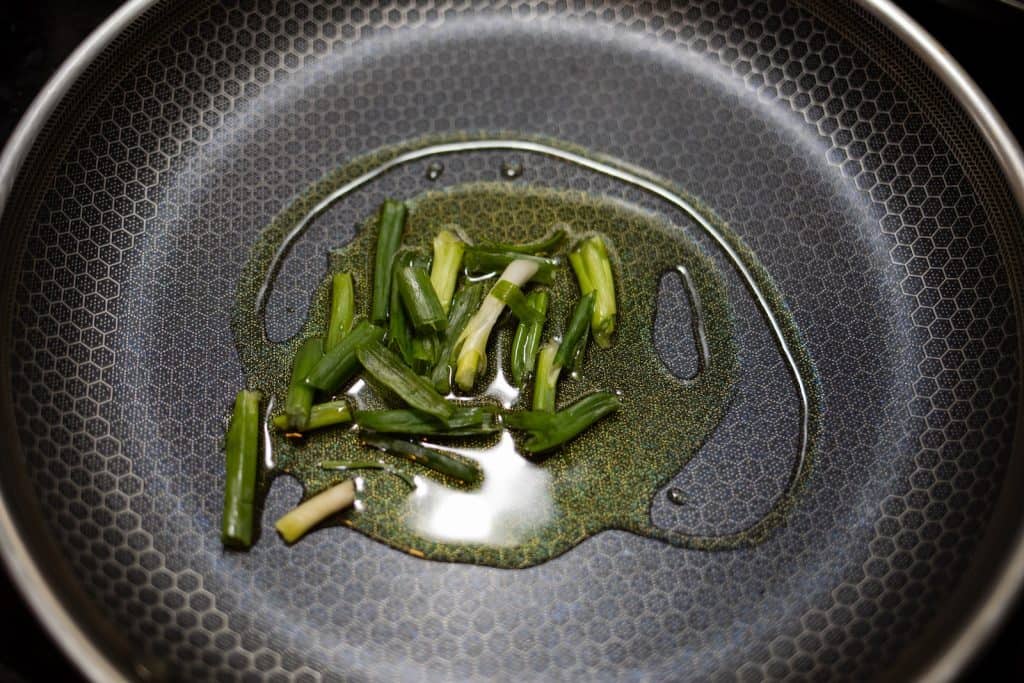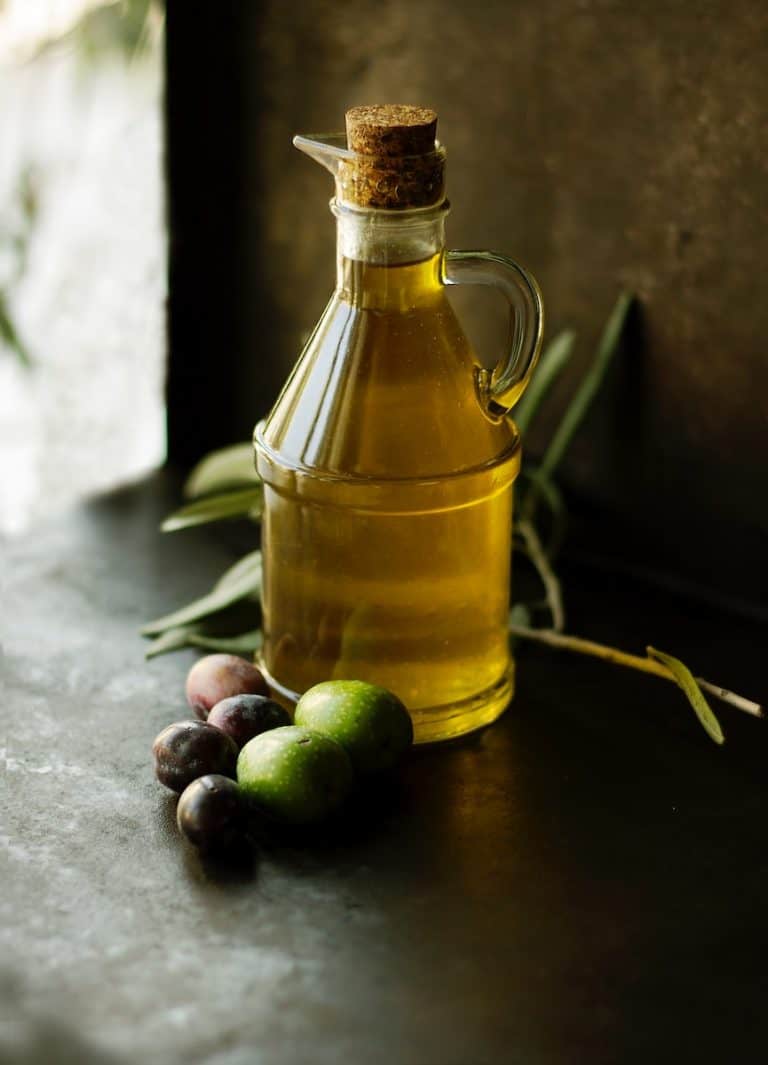Is sesame oil vegan? If you are a vegan, then you may be wondering if sesame oil is vegan. The answer to this question is a little bit complicated. Sesame oil is made from sesame seeds, which are a plant-based food. However, some sesame oils may be processed using animal-based products. If you want to be sure that the oil you are buying is vegan, then you should read the label carefully. There are many vegan-friendly brands of sesame oil available on the market today.

Is Sesame Oil Vegan?
Sesame Oil is perfect for those on a vegan diet because it comes from, you guessed it, sesame seeds! Sesame oil can be sourced from raw or toasted sesames seeds. They are both great additions to many dishes however the latter shouldn’t be used for frying. In Asian cuisine, Sesame Oil is widely used due its distinct nutty smell and taste. It’s also known as the Queen of Oilseeds among culinary experts.
Is Sesame Oil Vegan: What Is Sesame Oil?
Sesame oil is extracted from ripened sesame seeds. The edible fruit, or benne seed, grows in pods on the plant and is usually harvested by hand. They are then left to fully ripen in an upright position before being used for extraction.
Sesame seeds come from a plant that has been around for 3,000 to 5,000 years. It is believed to have originated in the southern part of the Sahara Desert in Africa. The seed is among the oldest oilseed crops known in history. Another variety is known to have first been cultivated either India or during the Indus Valley civilization period in South Asia.
The word “sesame” comes from the Latin word sesamum and the Greek word sēsamon, both of which mean “oil” or “liquid fat.” The English word benne first appeared in 1769 and was derived from the creole folk language Gullah. The Gullah people were African-American settlers who lived in coastal regions of Georgia and South Carolina. They can also be found in northeast Florida and southeast North Carolina.
Sesame is a plant that thrives in conditions where other plants would die, such as intense heat. Sesame oil contains different types of fatty acids, with linoleic acid making up around 40% of the oil. Other acids present in sesame oil include oleic acid, palmitic acid, and stearic acid.
Tanzania is not only the leading Sesame Oil producer in the world but also dominates global consumption alongside Asia and other African regions.
Sesame oil isn’t consumed just for eating purposes either, it’s widely used in cosmetics, soaps, lubricants, paints & otherindustrial purposes.
The Process
Sesame oil can come in different forms: cold-pressed, toasted sesame oil, or unroasted. Many consumers prefer virgin or unrefined sesame oil over refined versions. Refined sesame oil goes through a process of extraction, neutralization, and bleaching.
- Cleaning. Seed cleaning equipment helps you get rid of excess stones and dust, and focus on the seeds that will actually grow.
- Dry Roasting. Sesame seeds must be roasted until dried out before they can be pressed for oil.
- Pressing. The Sesame Oil Expeller squeezes the roasted seeds to extract its oil. Two to four days later, the newly extracted oil must settle before undergoing filtration.
- Filtration. The purpose of the filtration process is to remove impurities such as residue and oil cakes that are present after the oil has settled.
- Refining. The process of refining sesame oil involves using chemicals to remove impurities and odor. This is done through solvent extraction, neutralization, and bleaching. As a result of this process, the oil will have a clearer appearance.
- Packing. After the oil goes through numerous processes, it is finally ready to be packaged and sold in stores.

Is Sesame Oil Vegan: How Healthy Is It?
Sesame Oil is also known for its resistance to rancidity and is considered one of the most stable oils. Because the sesame plant can grow even in areas under drought conditions, Sesame Oil is referred to as the Queen of Oilseeds. It contains high levels of protein, fats, fiber, and some minerals that help improve human health overall.
Sesame Oil is packed with antioxidants. Two powerful antioxidants, sesamol and sesaminol, work together to reduce the risk of cell damage from free radicals. Its strong anti-inflammatory properties are also known to fight chronic inflammation.
Sesame Oil is also abundant in monounsaturated fats (MUFA), which has been shown to reduce the risk of heart disease. It’s worth mentioning that Sesame Oil contains approximately 85% unsaturated fats, all of which are good for cardiac health.
Is Sesame Oil Vegan: Different Types
Not only should you be aware of the different brands of Sesame Oil, but you should also understand what kind is best for cooking.
- Unrefined Sesame Oil. Because it has a low smoking point, it is best used for salad dressings or as a topper for many dishes.
- Refined. Its deep-frying Smoking point and neutral taste make it ideal oil.
- Blended. This is mixed with other vegetable oils, such as corn and soybean.
- Light. Our untoasted sesame seeds have a mild, yet great taste that is perfect for seasoning your food.
- Roasted. It has a light color with a mild flavor.
- Cold-Pressed. This meaning it avoids harsh chemicals and heat treatment, making it a healthier option.
Toasted. This potent seasoning is made from toasted sesame seeds, offering a strong and distinct aroma. It’s commonly used as a finishing touch in Asian cooking, adding delicious flavor to any dish.
Is Sesame Oil Vegan? – Final Thoughts
Just like olive oil, vegetable oil, peanut oil, Sesame Oil is a heart-healthy oil that can be used in various cooking and seasoning applications. Whether you’re making homemade stir-fries, salad dressings, or flavoring Asian dishes, same as palm oil, Sesame Oil can help add healthy fats and bold flavors to your cooking. So is sesame oil vegan? Yes – as long as it’s unrefined, cold-pressed, and organic. Keep in mind that the refining process of sesame oil often involves harsh chemicals and heat treatment that may not make it vegan. So be sure to check the label of your favorite brands to ensure you’re choosing one that is vegan-friendly!
Related articles…

